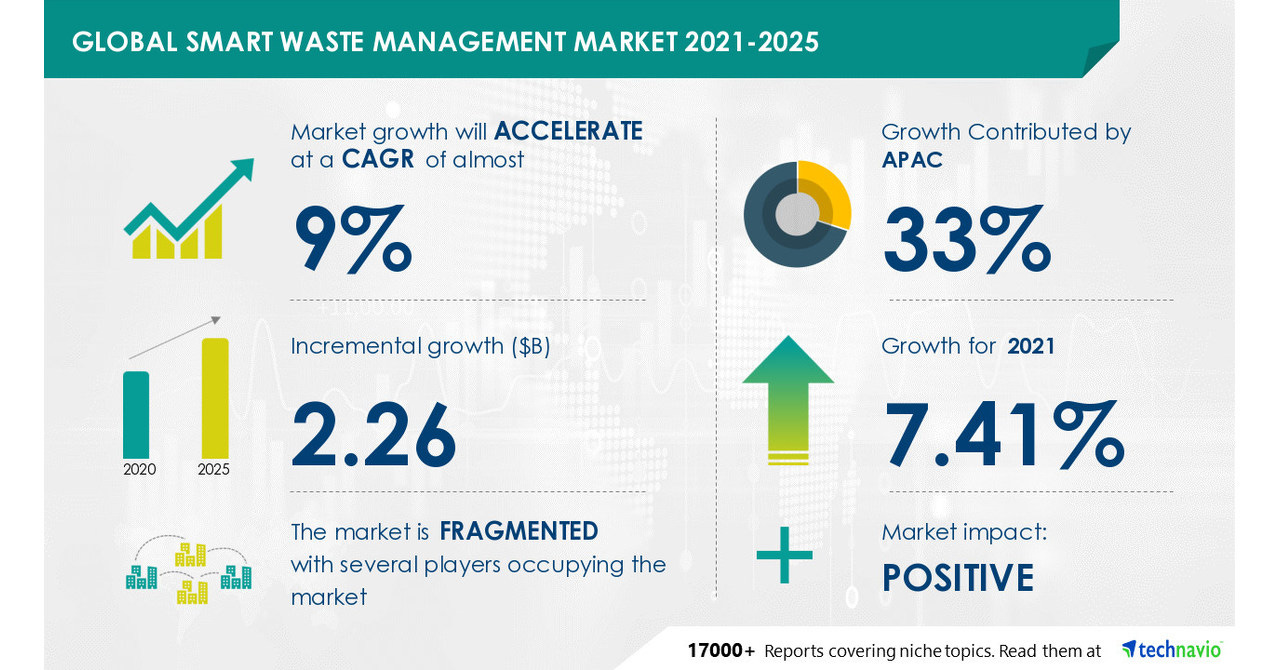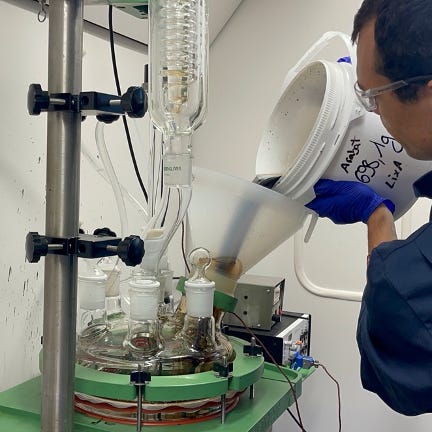The Weekly Deal CW17/24 - AraBat
One startup to watch, once a week. AraBat recycles spent lithium batteries and electrical waste by reusing organic waste through new sustainable technologies.
#circulareconomy #recycling #wastemanagement
🥜 In a nutshell
Company: AraBat
Industry: Recycling, Renewable Energy
Sub-Industry: Waste Management, Circular Economy
Year Founded: 2022
HQ: Foggia, Italy
Stage: Seed
Founders: Raffaele Nacchiero, Vincenzo Scarano, Giovanni Miccolis, Leonardo Renna, Leonardo Binetti
Funding Amount: $100K (non-equity grants)
Main Investors: ND
In a sentence: AraBat recycles spent lithium batteries and electrical waste by reusing organic waste through revolutionary sustainable technologies.
🔭 The Context
In an era marked by growing environmental concerns and resource scarcity, the need for sustainable solutions in waste management and resource recovery has never been more pressing.
In the context of Electric Batteries, currently about 50 kilotons of spent batteries are recycled annually in Europe. The quantity of batteries to be recycled will increase continuously in the coming years - and the origin of these batteries will also change.
According to calculations by Fraunhofer ISI, the amount of batteries to be recycled in Europe will reach 420 kilotons in 2030 (scenario range 200-800 kt) and 2100 kilotons in 2040 (scenario range 1100-3300 kt) (Figure 1a).
💡 AraBat’s Value Proposition & Solution
AraBat is dedicated to advancing the circular economy by developing innovative processes for recycling hazardous waste, with a primary focus on Waste Electrical and Electronic Equipment (WEEE) and spent lithium-ion batteries (LIBs).
Their mission extends beyond waste management to encompass the commercialization of secondary raw materials and the promotion of sustainability in the green economy.
🌟 AraBat’s Solution: reusing organic waste
AraBat's technology centers around an innovative and sustainable industrial process aimed at recovering precious metals from spent lithium-ion batteries (LIBs). Traditionally, metal extraction from LIBs involves a pyrometallurgical process, which is costly and environmentally taxing.
The AraBat innovative battery recycling technology, called “AraMet” is a green hydrometallurgical process aimed at sustainably recovering critical raw materials from spent lithium-ion batteries found in various electronic devices and electric vehicles.
The process involves three main phases:
Mechanical Pre-treatment (Spoke section): This phase includes discharging and mechanically shredding input batteries to recover copper and aluminum, resulting in a material known as black mass.
Bio-based Leaching (Hub section): This central phase utilizes water, organic acids (e.g., citric acid), and biomass derived from plant or fruit waste to extract valuable materials. Biomass such as orange peel or artichoke has proven highly efficient, achieving up to 95% leaching efficiency for lithium. The biomass is sourced from fruit juice processing companies or directly from farmers at minimal cost.
Selective Precipitations (Hub section): The final phase involves selective precipitations to recover high-value raw materials in the form of hydroxides (Ni, Mn, Co) and carbonates (Li).
The significance of biomass lies in its rich content of functional substances, which synergize with organic acids during the leaching phase, facilitating the recovery of secondary raw materials.
Advantages of AraMet over other processes include minimal biomass requirement, straightforward processing, and a robust supply chain. Additionally, AraMet is more sustainable, circular, energy-efficient, and cost-effective compared to pyrometallurgical or conventional hydrometallurgical processes, as it uses less water, has a shorter treatment duration, and operates at lower temperatures.
This approach reduces pollution, energy consumption, and health risks associated with traditional methods.
The innovation lies not only in the use of citric acid but also in the utilization of agro-food waste, particularly orange peel, rich in compounds that aid in metal extraction. By repurposing waste materials, AraBat's process promotes environmental sustainability and contributes to the circular economy by recycling both agro-food waste and electronic equipment waste containing LIBs.
Moreover, AraBat's process yields valuable outputs such as composts of nickel, cobalt, manganese, lithium, and other materials, which hold significant commercial value across various sectors. This multi-faceted approach not only benefits the environment but also enhances competitiveness through a green philosophy, potentially leading to positive publicity and market advantage.
🔍 Some Info
📈 Market Size → $40B
The market for recycling exhausted lithium batteries is valued at $40 billion, driven primarily by the growing electric vehicle sector. It is anticipated that approximately 705,000 metric tons of exhausted lithium batteries will be available for recycling by 2025, projected to increase to 9 million metric tons per year by 2040. Currently, only a small portion of lithium batteries are recycled, with the rest ending up in landfills. The value of raw materials in these batteries destined for recycling is expected to surpass $1 billion by 2025 and nearly $24 billion by 2040.
👨🏻🔬 Technology & IP → 1 patent pending
AraBat holds a patent pending for its innovative AraMet Battery Recycling Technology and has secured the "AraBat" EU trademark. The technology involves a sustainable recycling process for lithium batteries, with patents filed in Italy and internationalization requests made under the PCT.
🛒 Business Model → B2B
AraBat operates on a B2B asset-light model, offering licensing of innovative technologies in the biomass-electric transition field and industrialization of technologies developed in collaboration with partners. Revenue streams include disposal and recycling services for spent lithium batteries and the sale of recovered secondary raw materials to various industries.
🤝 Team → 5 co-founders + 1 advisor
The AraBat team consists of five co-founders and one advisor with expertise in management engineering, operations, finance, marketing, and organic chemistry.
💰 Financials → €45M of revenues projected by 2030
AraBat estimates revenues of over €45 million by 2030. Industrialization costs for a battery recycling plant are projected to be €12-15 million for the Hub plant, with annual COGS and Opex estimated at €20-25 million.
🥊 Competitors → Competitors with less sustainable processes
Competitors in the market primarily use unsustainable methods such as pyrometallurgical or conventional hydrometallurgical processes. Notable competitors include Accurec GmBh, AEA Technology, Li-Cycle, and Umicore. In Italy, there is a gap for an active recycler specifically targeting lithium batteries, providing an opportunity for AraBat to establish a foothold in the market.
❓Q&A with the Team
I had the chance to ask some questions to Raffaele Nacchiero, Founder and CEO at AraBat. Below a
1. Why are you the best team to build this?
Hunger, ambition, recklessness, empathy, and determination: our team, hailing from small towns in Southern Italy and working-class families, has all the right ingredients to break through the barriers of success. Our dream is not only to see AraBat at the top of the world, perhaps as a unicorn startup, but also to contribute to changing the status quo through the creation of an entrepreneurial project aimed at human and ecological development—a project that can serve as an example to future endeavors.
2. What progress has been made?
Our technology, developed in partnership with the University of Foggia's STAR Facility Centre, has undergone extensive validation with over 90 laboratory tests, reaching TRL 6/7 by October 2023 through a collaboration with a Canadian company. The technology has garnered significant recognition, winning prestigious awards and establishing itself as a leader in sustainable battery recycling. Experts praise AraMet as one of the most sustainable battery recycling processes globally, thanks to our innovative approach linking biomass, batteries, agriculture, and the electricity transition.
3. What is your fundraising situation?
We are currently in discussions with leading Italian investment funds and corporations to close our first investment round of over €2 million by mid-2024. This would be an extraordinary success, both in terms of the investment's scale and its symbolic significance in driving forward the development of our beloved region of Puglia and Italy as a whole. It truly demonstrates that great things can be achieved - things that are sustainable and futuristic - starting solely from dreams and expertise.
3. What are your next steps?
The next steps involve closing our seed investment round, finalizing a Joint-Venture Agreement (JVA) with a Canadian company to open a battery pre-treatment plant in Puglia (Spoke section), and establishing a Joint-Development Agreement (JDA) with one of the largest Italian multinational companies to build a pilot plant focusing on the most innovative aspects of our technology (Hub section).
Many thanks to Raffaele for the interesting conversation!
👨🏻💻 My Critical View
AraBat presents an innovative solution for recycling lithium batteries, but investors should carefully assess its ability to scale. While the market is significant, competition is fierce.
AraBat's sustainable technology shows promise, but its scalability, commercial viability and competitive advantages need confirmation.
The team's progress is commendable, but execution risks remain.
Overall, investors should conduct thorough due diligence before considering investment due to uncertainties surrounding technology adoption and market acceptance.
Stay tuned to discover the next startup on The Weekly Deal!









